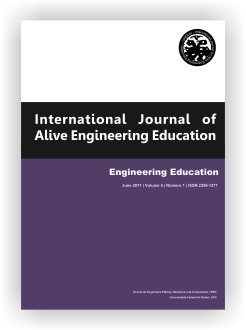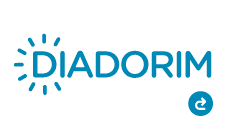Metodologias Ativas e Experiências em Disciplinas Relacionadas a Área de Segurança do Trabalho
DOI:
https://doi.org/10.5216/ijaeedu.v4i1.47240Palabras clave:
learning, active methodology, TBL, PBL, case studyResumen
The Team-based Learning (TBL) and Problem-based Learning (PBL) are active teaching methodologies that have been applied in several disciplines and provide students with the possibility of experiencing a daily professional experience, the development of ability to work as a team and the generation of solutions to the problems presented. This article aims to present the use, results and benefits of these methodologies that were applied to students of the Civil Engineering course of Potiguar University. For TBL and PBL, the Peer Instruction (PI) methodologies were used with the "Plickers" application to read QR codes delivered to each student. It is also presented and discussed the application of a Case Study, which is a Teaching Strategy that also makes teaching-learning more active and for which a technical visit was carried out at a construction site located in Natal / RN, in order to To verify compliance with the Regulatory Rules. These applications were quite effective, since, through a survey, the students evaluated them with a high degree of satisfaction.Citas
L.K. Michaelsen. “Getting Started with Team Based Learning.” In: Michaelsen LK, Knight A B, Fink L D, editors. Team-Based Learning: A Transformative Use of Small Groups. Praeger, 2002.
H. G. Schmidt. “Foundations of problem-based learning: some explanatory notes.” Med. Educ., submetido para publicação.
A.W. Burguess, D.M. McGregor, C.M. Mellis, “Applying established Guidelines to team-based learning programs in medical schools: A systematic review”, Revista Academic Medicine, no. 4, pp.1-11, 2014.
C. H. Crouch e E. Mazur. “Peer Instruction: Ten years of experience and results”. American Journal of Physics, no. 69, pp.970–977, 2001.
C. H. Crouch, J. Watkins, A. P. Fagen, E. Mazur. “Peer Instruction: Engaging students one-on-one, all at once”. Research-based Reform of University Physics, submetido para publicação.
N. Lasry. “Clickers or Flashcards: Is There Really a Difference?” American Journal of Physics, no. 46, pp. 242-244, 2008.
Chizzotti, Antonio, Pesquisa em Ciências Humanas e Sociais, 2a ed, São Paulo: Cortez, 1995.
R. K. Yin. Estudo de Caso: Planejamento e Métodos. Porto Alegre, RS: Bookman, 2015.
M. Ludke, A. Meda. “Pesquisa em educação: abordagens qualitativas.” São Paulo, SP: EPU: 1986.
W.J. Goode, P.K. Hatt. “Métodos em pesquisa social.” São Paulo, SP: Companhia Editora Nacional: 1979.
T. Borges, G. Alencar, Metodologias ativas na promoção da formação crítica do estudante: o uso das metodologias ativas como recurso didático na formação crítica do estudante do ensino superior. Cairu em Revista, no. 4, pp. 119-143, 2014.
Descargas
Publicado
Número
Sección
Licencia
Copyright
The author is responsible for the following statements by submitting an article electronically in the International Journal of Alive Engineering Education (IJAEEdu):
a) States that the document in question was reviewed by an expert in English language and it is an original work and it holds the prerogative to grant the rights contained in this license. It also states that the document does not infringe, as far as it is possible to know the rights of any other person or entity.
b) If the document in question contains material which does not hold the copyright, the author states have obtained the copyright holder’s permission to grant the Universidade Federal de Goiás (UFG) the rights required by this license, and that such material whose rights are third is clearly identified and acknowledged within the text or content of the document.
c) States that the study was conducted in accordance with the ethical standards of all applicable institutional, local, national and international guidelines.
d) It also states that any person appointed as author or co-author of the document is aware of it and agrees to be so appointed.
Authorization Form
As responsible for the submission of the document, I authorize the School of Electrical, Mechanical and Computer Engineering of the Federal University of Goiás to provide the paper free of charge, through the Electronic System for Publishing Magazines UFG (SEER / UFG) or in printed form, without compensation of copyright, in accordance with Law No. 9610/98. Is allowed, reading, printing and / or download, as a promotion of the Brazilian scientific production. Any use of the work not authorized under this license or the copyright law is prohibited.



